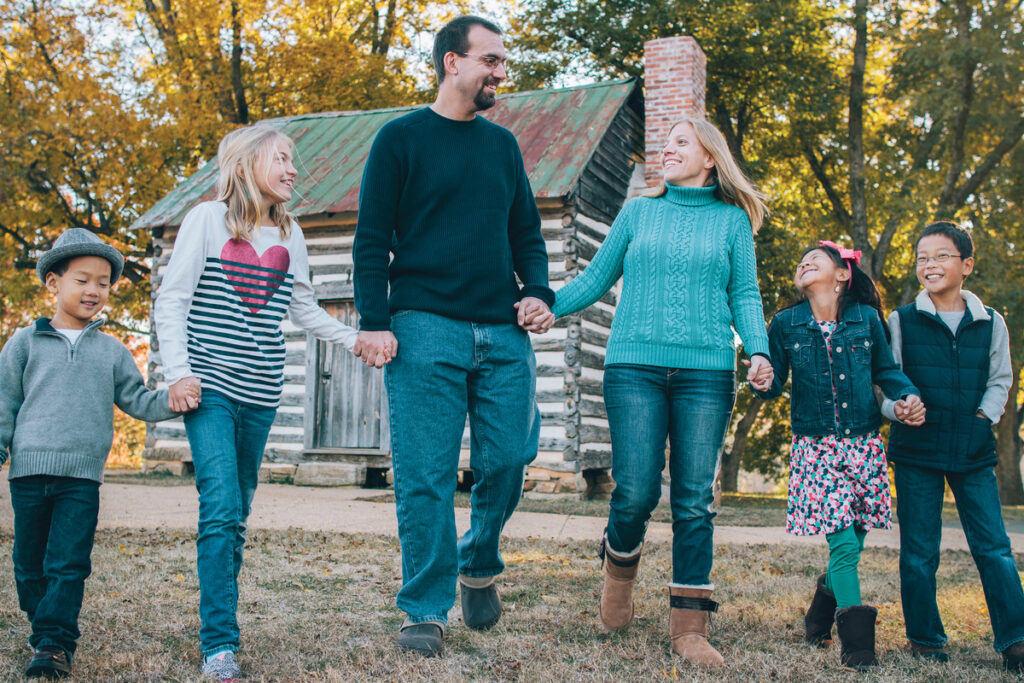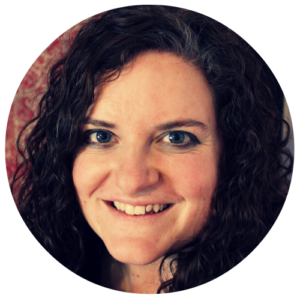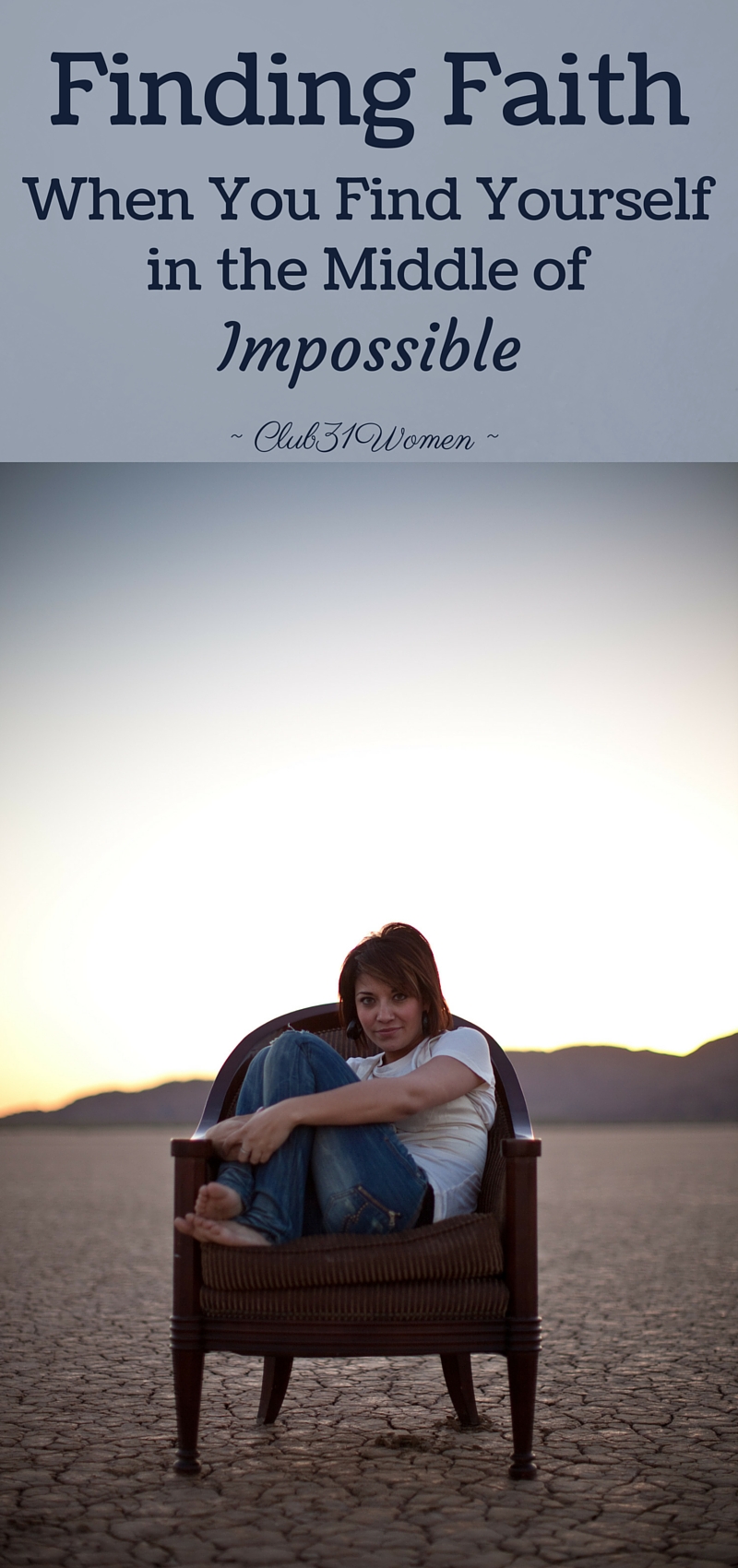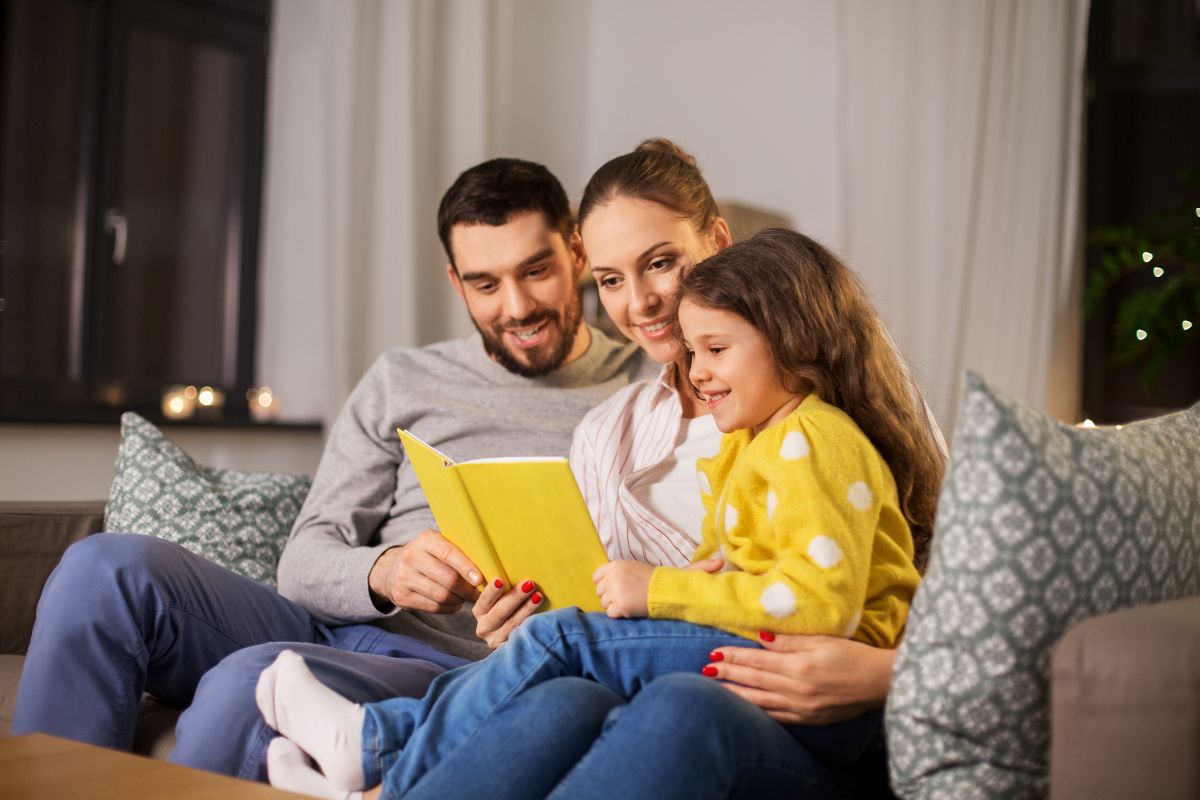5 Books to Read Before You Adopt
Do you feel called to adopt? There are some wonderful resources to help answer your questions and help you navigate this new terrain.
Hello, friend!
If you opened this post it’s possible you’re thinking about adoption. Perhaps you’re praying about it? Maybe in the process? Maybe just curious? Whichever way, I’m so excited to share with you.
Adoption is incredibly close to my heart.
It is through adoption a lot of my extended family has been built and it is adoption that moved me from childlessness to motherhood.
Before we adopted, I talked about adoption a lot. I was excited about it. I thought nearly everyone should adopt. I saw all those memes that said if everyone who claimed to follow Christ would bring home an orphan there wouldn’t be any orphans in the world. It sounded so picture perfect.
Every child deserves family, I thought.
I wasn’t wrong, but I was naïve.
Every child does deserve a family. God created us to be in intimate relationship with close family members—it’s basically written into our DNA. But a child with an attachment disorder will live without family, even when they’re surrounded by family, so adopting them isn’t a cure.
Family can’t be cut apart and then rebuilt without pain and sorrow and loss, and acknowledging that doesn’t discount the beauty and joy of adoption. Humans often feel more than one emotion at a time, so making room for contrasting feelings is necessary for emotional health.
Allowing for the sadness over the need for adoption to coexist with the joy of a new family isn’t just important: it’s essential.
And acknowledging the sadness means facing the reality of trauma.
I really do want to see more adoptions in the church. There are children who have been traumatized and are hurting who desperately need someone to show them the love of Christ. They need family. They need to know there is hope. They need to know they are created in God’s image and have infinite value.
But I don’t think you should walk into adoption without learning about trauma and its (sometimes) devastating effects.
Two things every potential adoptive parent should know about are trauma and attachment disorders.
Knowing what these are, and what you can do about helping a child heal from them, is extremely important.
So here are five books that I think everyone planning to adopt should read.
The Connected Child by Karyn B. Purvis
If you’re stepping into the adoptive world, especially when it comes to older adopted children or foster children, you’ll need to learn the name Karyn Purvis. Not only is she the author of this essential book, but she also founded the Karyn Purvis Insistute of Child Development and is the co-creator of Trust-Based Relational Intervention, better known as TBRI.
This book explains connection and attachment and the role that trauma plays in destroying both, and how to help the brain recreate lines of connection afterward.
If you’re going to adopt, you need to read this book. Everything in it is not prescriptive, but it gives a really good overview of attachment and why it all matters.
Upside Down: Understanding and Supporting Attachment in Adoptive Families by Shannon Guerra
This book is written for friends and relations of adoptive families, but it’s also a perfect place to start if you’re looking into adoption.
It’s a fun, quick read that breaks down the understanding of how attachment works and what kind of support system adoptive parents need. If you’re looking into adoption, definitely get a copy. If you complete an adoption, especially an older child adoption through foster care or internationally, donate a copy to your church library and ask everyone close to you to read it.
The Body Keeps the Score by Bessel van der Kolk
This book is the heaviest read in this list. And it’s quite heavy.
Actually, brutal might be a better word. It doesn’t hold back and trauma is ugly, so some parts are so harsh you’ll probably need to walk away for a bit and regroup.
But it tells a story about trauma that we need to look at seriously, especially if we’re hoping to meet a child in the trenches to help show them the love and goodness and kindness of God.
Discipline that Connects with Your Child’s Heart by Jim and Lynne Jackson
One of the hardest parts of parenting traumatized children is learning how to discipline in a way that is effective and healing. It’s actually harder than you’d think because there is no natural base-connection with an adoptive child so traditional methods usually won’t work.
Parenting a child with attachment disorders is different, and you’re going to need some new tools to work with or you might end up in a worse place than where you started. It’s a difficult transition, especially if you feel like you have a handle on child development in a healthy setting.
This Christian-based parenting book addresses discipline through the lens of connection and gives a lot of helpful and useful ideas that you can implement, along with a connection-based philosophy for disciplining that is necessary for parenting adopted children.
The Connected Parent by Lisa Qualls and Karyn Purvis
This brand new book on parenting children from hard places is full of stories, ideas, and strategies to form proper connection and attachment with your adoptive kids.
Understanding how to combat fear, nurture your child, and teach respect is hard when the tools you used for biological children, or your parents used for you, don’t apply anymore. This book gives you new tools to try. Sometimes just learning to look at situations from a different viewpoint makes all the difference in the world and this book, like The Connected Child, will do that for you.
If you’re hoping to adopt someday, make sure you have this resource on hand.
I want to end this list with two disclaimers:
First, through these five books, you’ll receive SO MUCH information, you’ll feel like your mind is exploding. Don’t try to process it all at once. Just listen. You might not need any of it once your child is home, but you might need all of it. So let it just sit with you.
To piggy-back on that point, remember that some of these books are written from a secular perspective. As Believers we should always read everything (Christian-based or not) through the lens of Scripture, so make sure you are prayerful with how you apply anything from any source.
Second, remember theories are great in books but they don’t always translate to family life very well.
This was my biggest mistake when we first adopted. I read all the books and knew all the terminology and ideas. Then when I couldn’t implement it practically, I felt like such a colossal failure.
I don’t want you to feel that way because it wasn’t true for me and it won’t be true for you either. Ideas are awesome but they can’t and won’t translate perfectly to life. Every child and every parent are unique individuals. So if you followed the advice of the experts perfectly 100% of the time (which is impossible, of course) it still wouldn’t guarantee healing for your child.
The truth is that God is the one who heals wounded hearts. He is the one who rebuilds broken stories.
You are not responsible for healing or rebuilding your children, whether they are adopted or biological. That has been, and always will be, the work of God Himself.
I pray the Lord’s blessing on your adoption journey, dear ones.
Love,
Natasha
P.S. Here are a few related book lists:
- Books to Empower Supporting Adoptive Parents
- 5 Hope-Filled Books for the Woman Hurting or Struggling with Infertility
Here at Club31Women, we recognize that not everyone has the same taste or point of view on books, music, or movies, but we offer these short reviews for your consideration. Our hope is that you will find something new and wonderful on this list of recommended resources!
~ Club31Women













